Canada politician Patrick Brown resigns amid sexual allegations
- Published
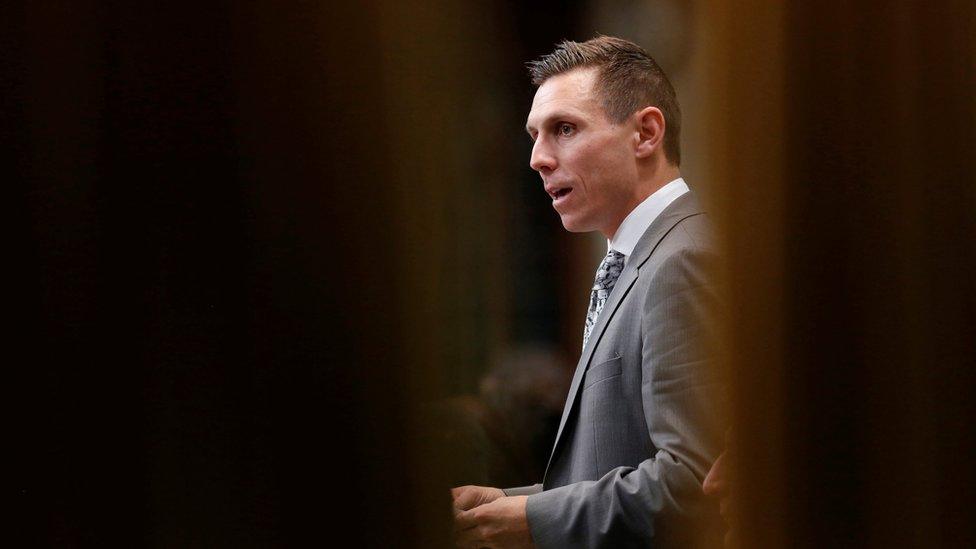
Ontario Progressive Conservative leader Patrick Brown has resigned in the wake of sexual misconduct allegations
A Canadian politician has resigned just months before a key election after two women accused him of inappropriate sexual behaviour when they were teens.
How long does it take to fall from grace?
For Canadian politician Patrick Brown, it took mere hours.
Late Wednesday evening, CTV News published the accounts of two women accusing Brown of sexual misconduct, external when he was a federal MP in his late 20s and early 30s and they were teenagers.
WARNING: This article contains graphic details that some readers may find upsetting.
Although he denies the allegations, by early Thursday morning, he was no longer the leader, external of the province's centre-right Progressive Conservative party.
Patrick Brown: "These allegations are false"
Both women say Mr Brown plied them with alcohol when they were below the legal drinking age. A noted teetotaller, he was stone-cold sober, they say.
Both women say it happened in his private home. The never-married politician was a federal MP at the time.
And both women say he pressured them or tried to pressure them into sexual activity.
One says he picked her up at a bar more than a decade ago, and brought her back to his house with the promise of booze. When they were alone, he exposed himself and asked for oral sex.
The other says he met her on a plane in 2012 when she was 18, and quickly began flirting with her over social media. He offered her a job in his constituency office, which she accepted. Then at an after-party in his home after a charity hockey match, she claims he pushed her on the bed, got on top of her and pressed his erection into her body. She says she froze, and asked to be taken home. He agreed.
Soon after the incident, he offered her a job accompanying him to India.
"He told me that I, you know, he thought that I would look really good on an elephant," she told CTV News.
Neither anonymous account has been independently corroborated by the BBC.
During a last-minute, late-evening press conference, where he appeared shaken and near tears, Mr Brown vehemently denied any impropriety and refused to step down as leader of the Ontario PC party
"It's never okay for anybody - for anyone - to feel they have been a victim of sexual harassment, or feel threatened in any way," he said.
Moments later, publicly and en masse, three seniors aides, including his campaign manager and chief of staff, announced their resignation.
Allow X content?
This article contains content provided by X. We ask for your permission before anything is loaded, as they may be using cookies and other technologies. You may want to read X’s cookie policy, external and privacy policy, external before accepting. To view this content choose ‘accept and continue’.
Other staffers soon followed.
Shortly after 1am local time, Mr Brown bowed to pressure.
"These allegations are false and have been difficult to hear," he said in his statement.
Mr Brown says he will keep his seat in the provincial legislature as he fights to clear his name.
He now joins company with politicians from around the globe whose careers have been derailed by sexual misconduct allegations as the Me Too movement gains momentum.
The speed of Mr Brown's fall can be linked to the movement that has seen women - and men - share personal stories of inappropriate sexual behaviour.
But politics played a role as well.
Canadian political parties will have watched as, south of the border, former Alabama Supreme Court Justice Roy Moore became the first Republican to lose an election for a Senate seat in Alabama in 25 years.
A number of women accused Mr Moore of sexual misconduct when they were teenagers, including allegations that he sexually abused a 14-year-old girl.
Despite mounting accusations, Mr Moore refused to drop out of the race, and was defeated by Democrat Douglas Jones in December.
Mr Brown wasn't the only resignation on Thursday.
Canadian Prime Minister Justin Trudeau announced Sport Minister Kent Hehr had resigned his cabinet position pending an investigation into allegations of sexual harassment levied against Mr Hehr on social media.Mr Hehr said he welcomes the investigative process and does not "want to be a distraction to all the good work being done by our government".
But Mr Brown's resignation resonated particularly because he was the front-runner for one of the most powerful political jobs in the country - premier of Canada's most populous province that is responsible for almost 40% of the country's GDP.
Now, he is persona non grata as the party scrambles to mount a defence against incumbent Liberal Premier Kathleen Wynne.
Mr Brown "is entitled to a legal defence and due process, but he cannot lead us into an election as a result of these allegations", said the Progressive Conservative's deputy leaders in a statement on Thursday.
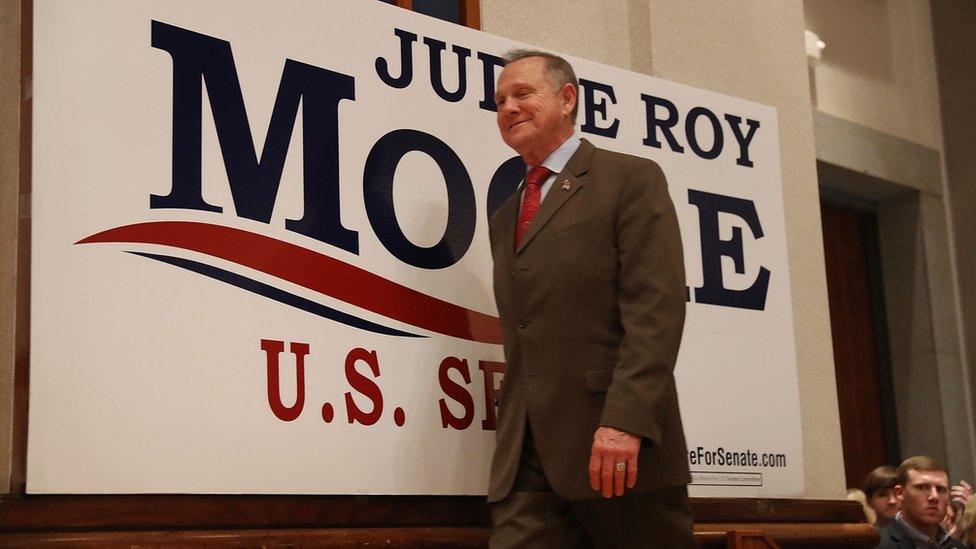
Republican candidate Roy Moore lost a safe Senate seat after facing accusations of sexual misconduct
Deputy party leader Sylvia Jones referred to the allegations as a "hiccup" and said the party was unanimous in its belief that Mr Brown could not continue as leader.
Federal Conservative party leader Andrew Scheer, once Mr Brown's Parliamentary colleague, was quick to condemn the "extremely serious" allegations against the former PC leader.
"Sexual misconduct, and sexual harassment have no place in Canadian society, especially within our political system," he said, and called for a full investigation into the accusations.
Mr Trudeau, whose federal Liberals have close ties to their provincial counterparts led by Ms Wynne, has a record of taking a hard line on sexual harassment allegations.
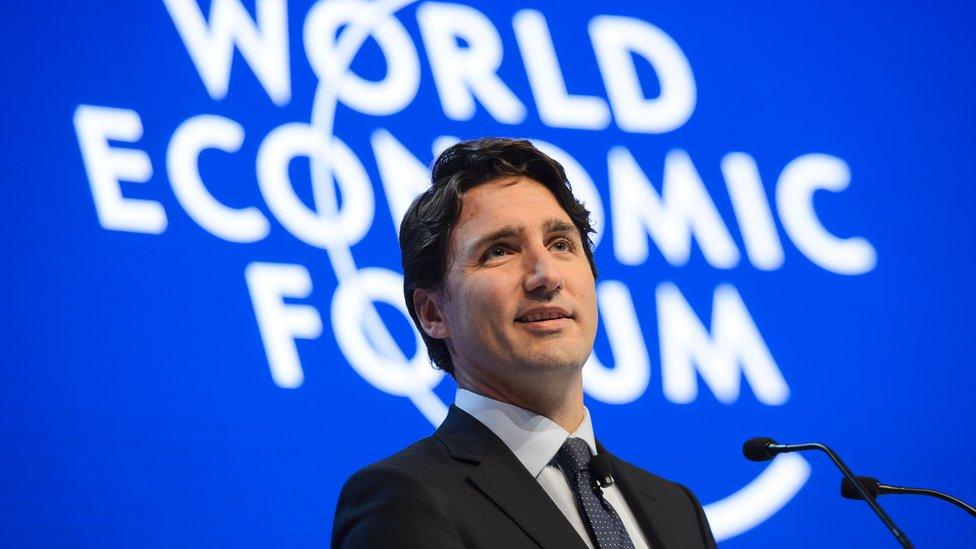
Prime Minister Justin Trudeau promoted the Me Too movement in Davos
In 2015, he quickly ejected two Liberals MPs from his caucus after two rival female politicians accused them of sexual harassment.
His stance three years ago looks prescient in a post-Harvey Weinstein scandal world.
What happens next?
Mr Brown's resignation has thrown June's provincial election for a loop.
The Ontario PC's were ahead in the polls, ahead in fundraising and ahead in voter recruitment.
Their growing popularity was seen by many as an indictment against Ms Wynne's Liberal Party, which had ruled the province for 14 years but whose popular support had been chipped away by divisive policy decisions and rumours of political corruption.
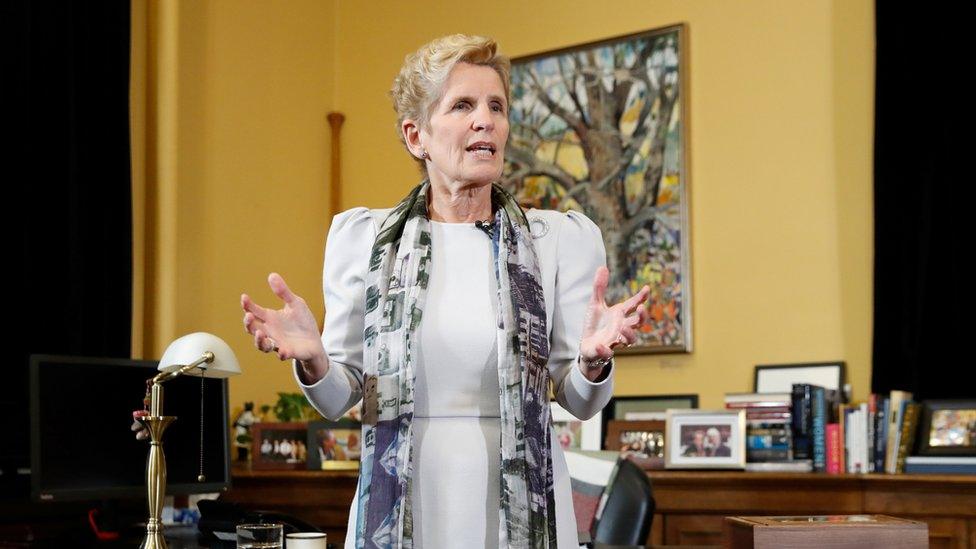
Ontario Premier Kathleen Wynne comments on allegations against Patrick Brown
Now, Mr Brown's resignation means that the Ontario Progressive Conservatives will have to pick a new leader, fast, if they hope to succeed in toppling the Liberals.
Ms Wynne weighed in on the allegations against her former opponent on Thursday from her desk at Queen's Park, the provincial legislature.
The backdrop made a potent statement on her intention to remain in power.
"I was shocked," she said of the allegations.
"It was very courageous of them to step forward and I hope they have the support they need because it was a very difficult thing, and they have had to carry it around with them for years."
- Published14 December 2017
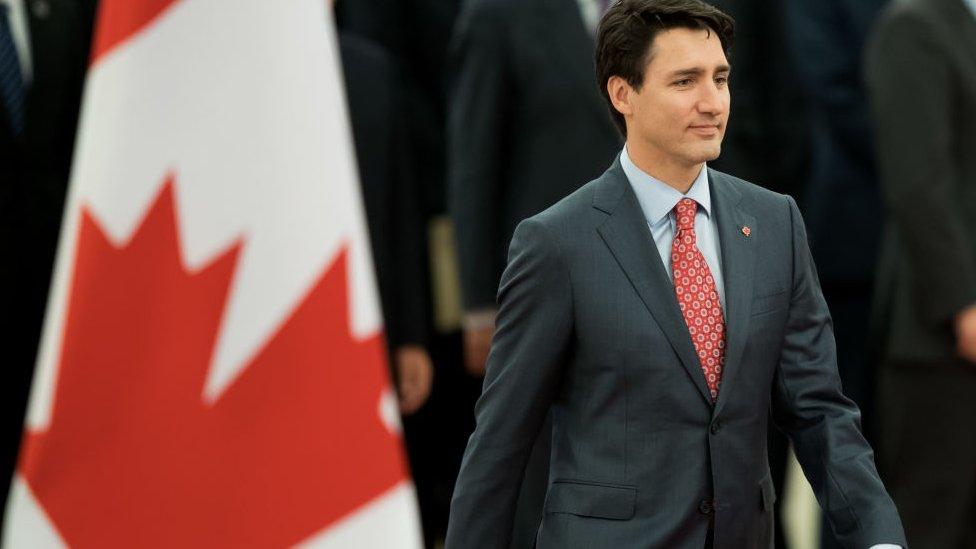
- Published13 November 2017
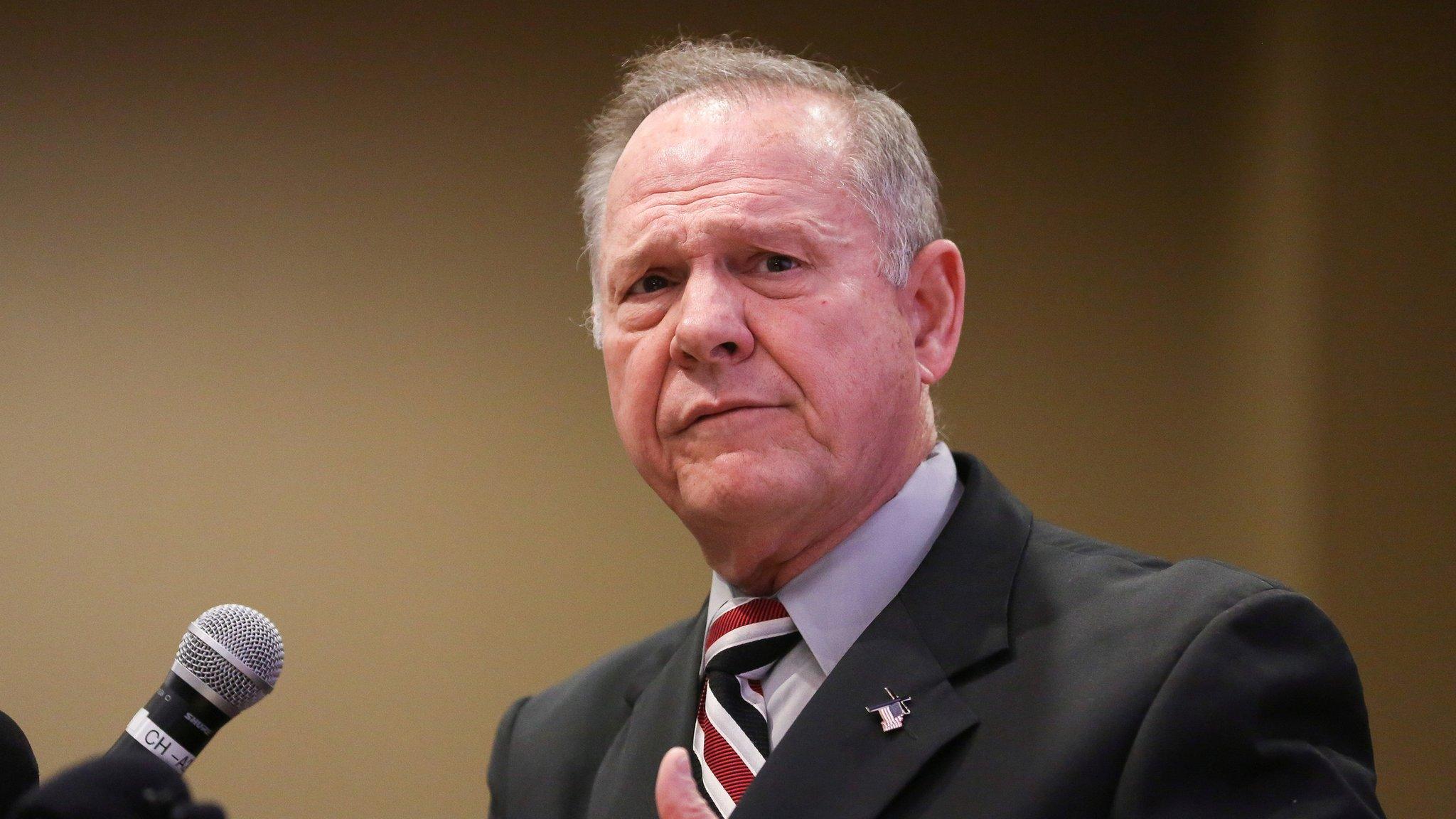
- Published20 November 2017
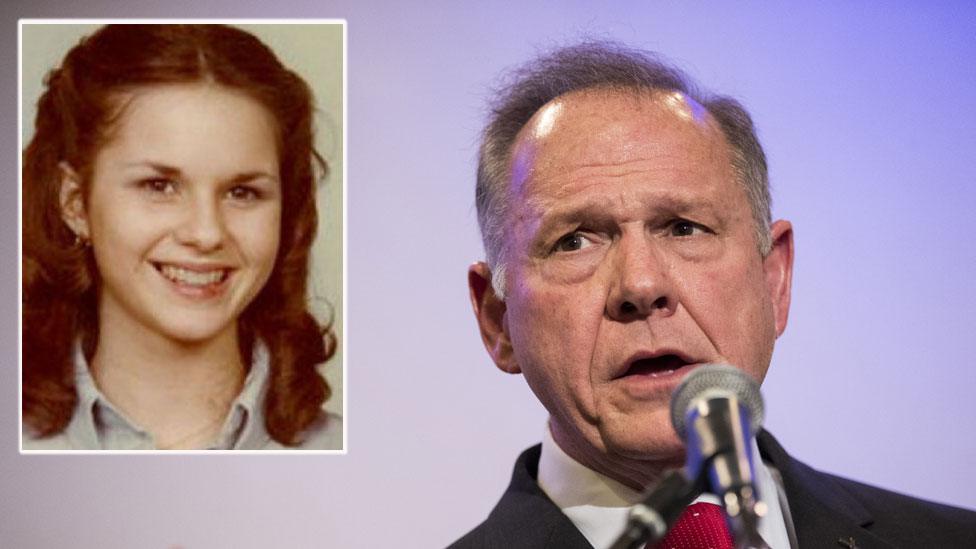
- Published13 December 2017
